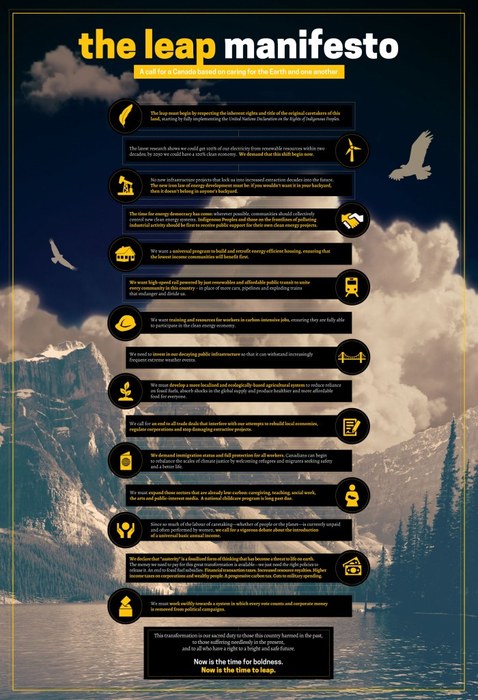
Leap Manifesto needs to move farther left | Graham Cox
The criticism of the Leap Manifesto as being too radical or too far to the left falls flat when examined in the context of current policy of progressive energy labour unions. The fact is, the Leap document is not 'radical' in essence, it is centre-left/liberal. This is a problem for those who want to discredit it with baseless name calling. Unfortunately, calling it far-left or extremely radical causes confusion and undermines the broader left program demanding the necessary radical solutions to climate change.

